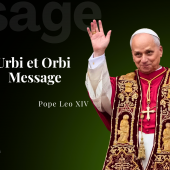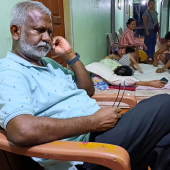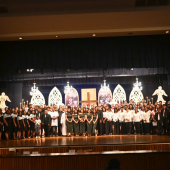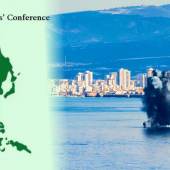The democratic transition of Myanmar and Catholic Church
Being in the category of the third wave democracy countries, the democratic transition of Myanmar started after the establishment of 2008 Constitution and 2010 general election. Initially Myanmar practiced democracy subsequently independence (1947), unfortunately the military coup in 1962 crafted the regimes to totalitarian and authoritarian government until 2010. The pro democracy groups had organized numerous democratic movements since military coup happened including significant resistance as 1988 uprising. The military vowed to organize the election in 1990, conversely, the result has been nullified and the situation turn backfired. However, Myanmar is moving to democratic transition with slow progress.
While we are talking about the democracy, we cannot omit the prominence of nation building. According to the status of seven decades armed conflict and civil war, the democratic transition of the Myanmar must integrate with federalism to craft the peaceful developed nation. Federal democracy is an only practical, realistic and comprehensive way to reborn the nation as the peace and prosperity union.
Catholic Church and youth participated different roles in non-violence resistances in early. However, it is very crucial when the numerical political ideologies are spreading into societies and people are supporting the different groups. As the youth activist, the role of the church is very simple to support the democratic transition as preaching to vote in the election. Nevertheless, after the pre election campaign of 2015, it is rarely to see the role of the church directly in Democracy developments. Myanmar is facing the obstacles to practice the democracy and its values by the Government, legislatures, jurists and public even. It is very normal in immature democratic countries though, as same as transitional justice, strengthening the democracy is the responsibility of single citizen.
On the other hand, the peace building and democracy strengthening can not bother in the political transition of Myanmar because peace cannot sustain without democracy and democracy cannot sustain without peace building in diversity. The church is very active in peace building especially the Cardinal, Bishops, priests, nuns are involving actively in interreligious dialogue and peace building process, prayers and donations.
It is very important to understand the situation in Myanmar about dynamic of conflicts because the ideology of polarization came from the input ideology of Burmanization from military regime. In the total percentage of the country, majority of catholic are non-Burmese (Majority) except Mandalay Diocese and the ethnic people have experienced by the civil war and violence more than urban areas. It is very sad to see the catholic people as the IDPs and leaving their lands because of war. Plus also very sad to see the Church is not being major stakeholder in peace process as well. After the conflicts, transitional justice process will integrate to reconcile the people from ethnic and majority Bamar. It is very vital to understand that why we are being catholic and what can we do when our brothers and sisters in Christ are suffering.
The role of the youth is very important and indispensable not only in the church but also for country. It is very gloomy to see small numbers of catholic youth activists are fighting for the democracy and peace in the ground. The church is still asleep in empowering of youth strategically and vision. I had a meeting with a professor in Sweden in 2016. He expressed me he was amazed to see catholic activists in person and it is rarely to see catholic youth to be activist in Myanmar. Connecting with that comment and reality, there is no space to learn about Social Sciences, Political Sciences and Peace building academically for the catholic youth. Less participation of catholic youth in politics, peace building and democracy strengthening means same as church participation.
In addition, peace building and democracy strengthening are the vital steps for Myanmar to ensure in present and future. In order to participate the nation building, the church need to participate in policy levels of peace building and empower the youth to participate in democracy strengthening. Democracy strengthening and peace building is a long journey and we; youth have to tackle to craft the peaceful society with equality and equity. As the catholic youth, I am proud to be social activist and urge youth to participate in peace building and democracy strengthening as much as we can for our nation.
Bosco (Mandalay)
Radio Veritas Asia (RVA), a media platform of the Catholic Church, aims to share Christ. RVA started in 1969 as a continental Catholic radio station to serve Asian countries in their respective local language, thus earning the tag “the Voice of Asian Christianity.” Responding to the emerging context, RVA embraced media platforms to connect with the global Asian audience via its 21 language websites and various social media platforms.














